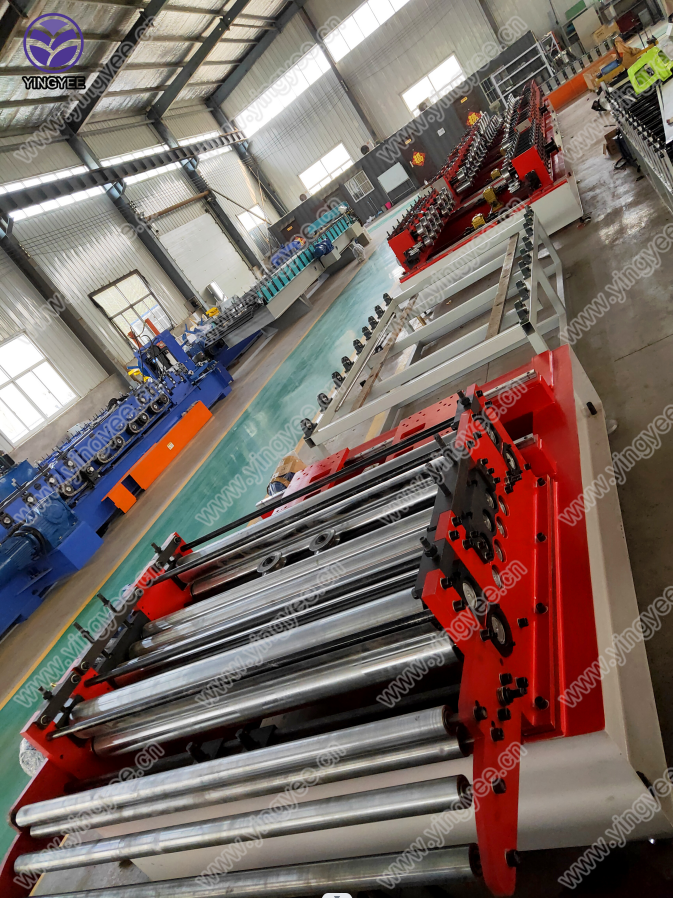
The Advancements and Importance of Stud Forming Machines in Manufacturing
In recent years, the manufacturing industry has undergone significant transformations, largely driven by technological advancements. Among the many innovations that have emerged, stud forming machines have played a pivotal role in enhancing production efficiency and improving product quality. This article delves into the details of stud forming machines, exploring their operation, benefits, and applications in various industries.
Understanding Stud Forming Machines
Stud forming machines are specialized equipment designed to convert raw material, typically metal wire or rod, into studs or fasteners through a process of forming. The process typically involves several stages, including cutting, bending, and shaping the material into the desired form. These machines can produce a wide variety of stud types, including threaded studs, weld studs, and self-clinching fasteners, catering to diverse manufacturing needs.
The operation of a stud forming machine is generally automated, allowing for high-speed production with minimal manual intervention. Most machines are equipped with programmable controls, enabling manufacturers to adjust parameters for different specifications easily. This flexibility not only enhances production capacity but also ensures consistency in quality, which is critical in meeting stringent industry standards.
Key Benefits of Stud Forming Machines
1. Increased Efficiency One of the primary advantages of stud forming machines is their ability to produce large quantities of fasteners at high speeds. Automating the forming process eliminates the need for manual labor, thus reducing production time and costs.
2. Cost-Effective Production While the initial investment in stud forming machines may be significant, the long-term savings are substantial. The efficiency and speed of these machines reduce labor costs and material waste, providing a quick return on investment (ROI) for manufacturers.
3. Quality Assurance Stud forming machines produce uniform and precise fasteners, which is crucial for applications in industries such as automotive, aerospace, and construction. The consistency ensured by these machines minimizes defects, reducing the likelihood of costly recalls and enhancing the overall quality of the end product.

4. Versatility Modern stud forming machines are designed to accommodate a wide range of materials and shapes. This versatility allows manufacturers to produce a variety of fasteners suitable for numerous applications, from small electronics to heavy machinery.
5. Reduced Material Waste These machines often require less material than traditional machining processes, which typically result in significant waste. By using wire or rods that are formed into shape, stud forming machines optimize material usage, promoting sustainability in manufacturing.
Applications of Stud Forming Machines
Stud forming machines find applications across several industries. In the automotive industry, they are used to manufacture essential components like engine mounts, brackets, and frame supports. These components must withstand extreme conditions, making the quality of fasteners a priority.
In the construction sector, stud forming machines produce connecting hardware, such as drywall studs and load-bearing fasteners. The ability to manufacture strong, reliable fasteners is vital for the safety and durability of structures.
Moreover, in the electronics industry, stud forming machines manufacture specialized fasteners for circuit boards and other components. The precision required in this sector is met with the advanced capabilities of these machines.
Conclusion
As manufacturing continues to evolve, stud forming machines remain at the forefront of innovation. They not only improve the efficiency and quality of production but also contribute to the sustainability goals of various industries. By investing in advanced stud forming technology, manufacturers can ensure they stay competitive in an ever-changing marketplace while meeting the growing demands for quality and efficiency. As we look to the future, the role of stud forming machines will undoubtedly become more significant, shaping the landscape of modern manufacturing.